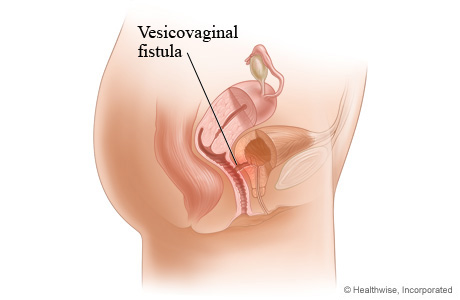BaraObstetric Fistula is a childbirth complication which is an abnormal connection between the rectum/bladder and the vagina.
It may occur in the setting of unduly prolonged pressure applied by the fetal head on the pelvic bone and its intervening pelvic structures as the fetus passes through the birth canal. This in turn results in an abnormal passage between the vagina and the bladder (vesicovaginal fistula) or the rectum and the vagina (rectovaginal fistula) resulting in uncontrolled leakage of urine/feces through the vagina.
According to the World Health Organization 2018, about 50,000-100,000 women are affected yearly by Obstetric Fistula. It was also estimated that more than 2 million young women live with untreated Obstetric Fistula in Asia and sub-Saharan Africa, with Nigeria contributing about 150,000 cases.
Additionally, about 12,000 new cases of Obstetric Fistula occur every year in Nigeria; a disproportionate 7.5% of this global burden. It should however be noted that this data is not representative, as there is paucity of statistics in that regard. The likely ensuing factor is that majority of these victims do not seek healthcare prior to, or during this complication hence, majority of these cases do not see the light of the day nor get recorded. Here, the Iceberg phenomenon comes to mind.
Obstetric Fistula is a constant and living reminder of a country’s failure to prioritize the public health care needs of a large population of women and girls in the country; more importantly the failure to address their basic human rights. Despite the realization of Obstetric Fistula and its diverse adverse effects, it largely remains a neglected and ‘hidden’ disease which is not duly prioritized amidst reproductive health issues of the Nigerian health care system.
At the current rate of repair and estimated prevalence of 150,000 cases, it is projected that it will take 83 years to clear the backlog of cases. There is consequently an urgent need to develop a strategy to accelerate this rate of repair for attainment of the goal of elimination of Obstetric fistula in this generation
The current state of Obstetric fistula in Nigeria is quite alarming; there has been intermittent interventions of international & national NGOs and State governments at all levels. However, there is still so much to do in terms of health care reforms and providing adequate and accessible healthcare facilities channeled towards ensuring safe childbirth delivery for women at all levels.
Launching and making its presence known in the maternal health sphere in September 2018 with its head office based in Kaduna, Bashir Fistula Foundation kick-started a sustainability project by donating relief materials to fistula patients at Hajia Gambo Sawaba General Hospital (Fistula Care Unit) in Zaria, Kaduna. This event recorded beneficiaries with food and sustainable materials to last them for not less than three months.
Since then, it has been a roller-coaster of other remarkable projects. It has subsequently conducted awareness campaigns, driven reforms and impactful projects at local, state and national levels. Bashir Fistula Foundation has since driven its impacting awareness campaign across all social media platforms with written/verbal consents of Fistula victims and survivors, and most importantly conducted sensitization across grassroots communities in Kaduna State.
The goal is to end Obstetric Fistula in Nigeria. To achieve this, we need to expand to other states in the country and also reach out to women in isolation who are either unaware that fistula has a cure or unable afford it. To gather support to achieve this goal, there must be an increase in the awareness of Obstetric Fistula in Nigeria. Every Nigerian needs to know about this problem, and all hands need to be on deck, for us to be able to solve it once and for all.
Ibukun wrote in from Abuja.

 Join Daily Trust WhatsApp Community For Quick Access To News and Happenings Around You.
Join Daily Trust WhatsApp Community For Quick Access To News and Happenings Around You.


